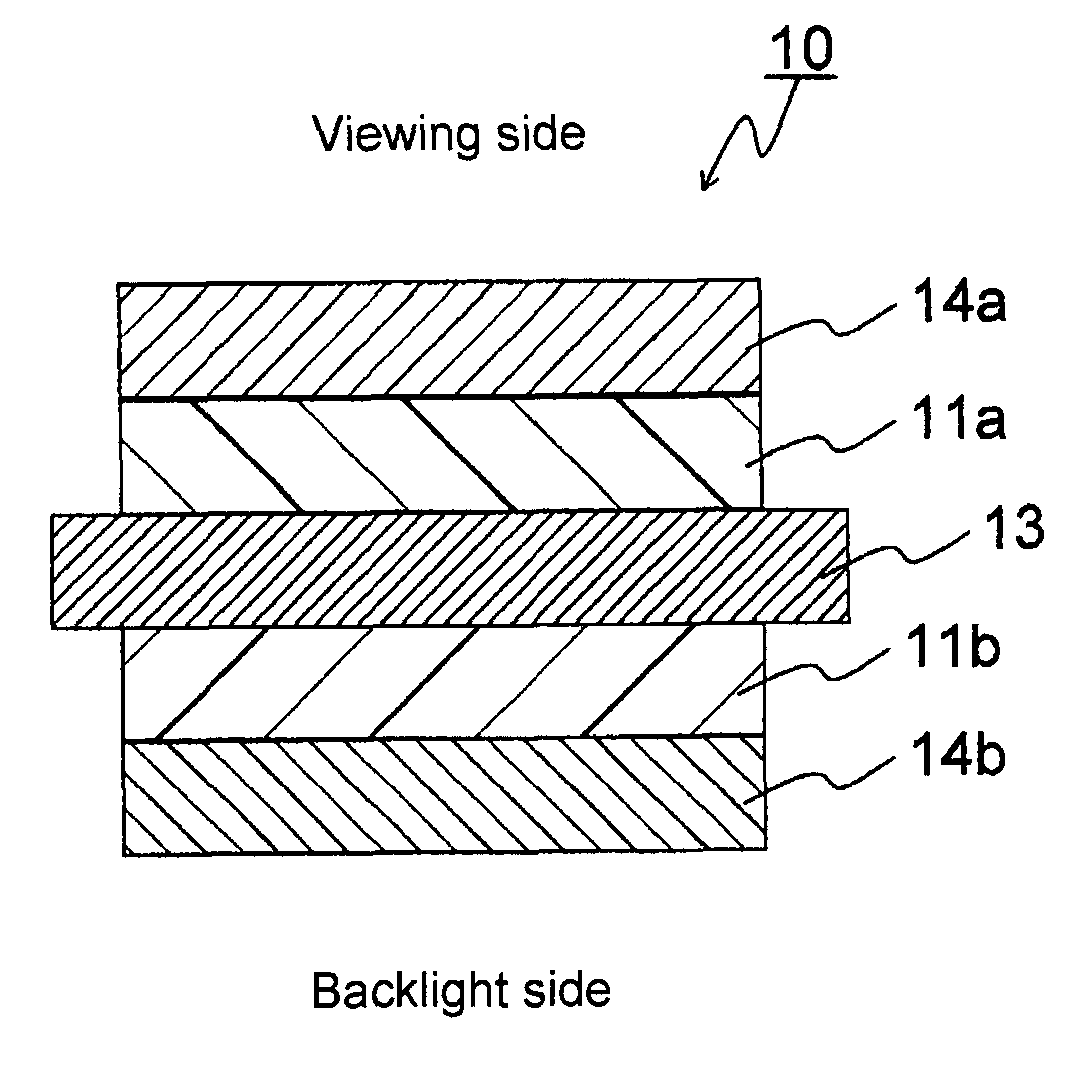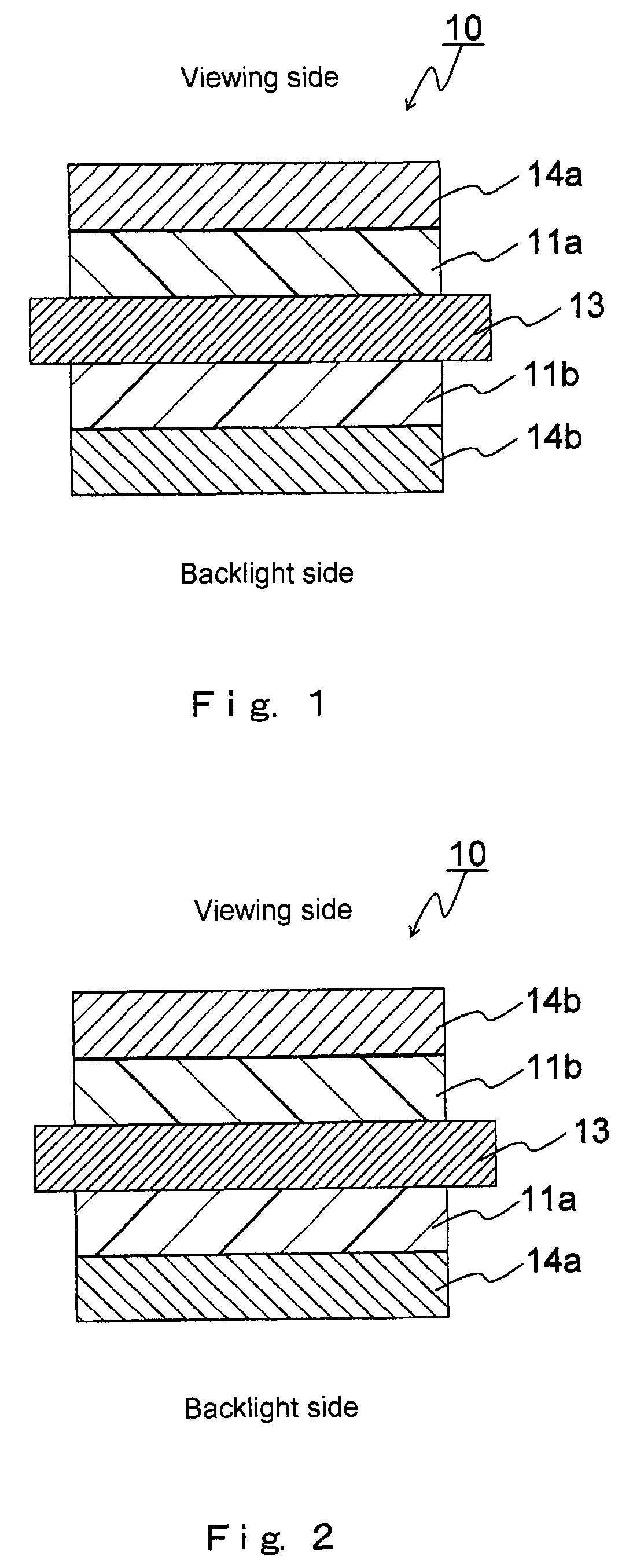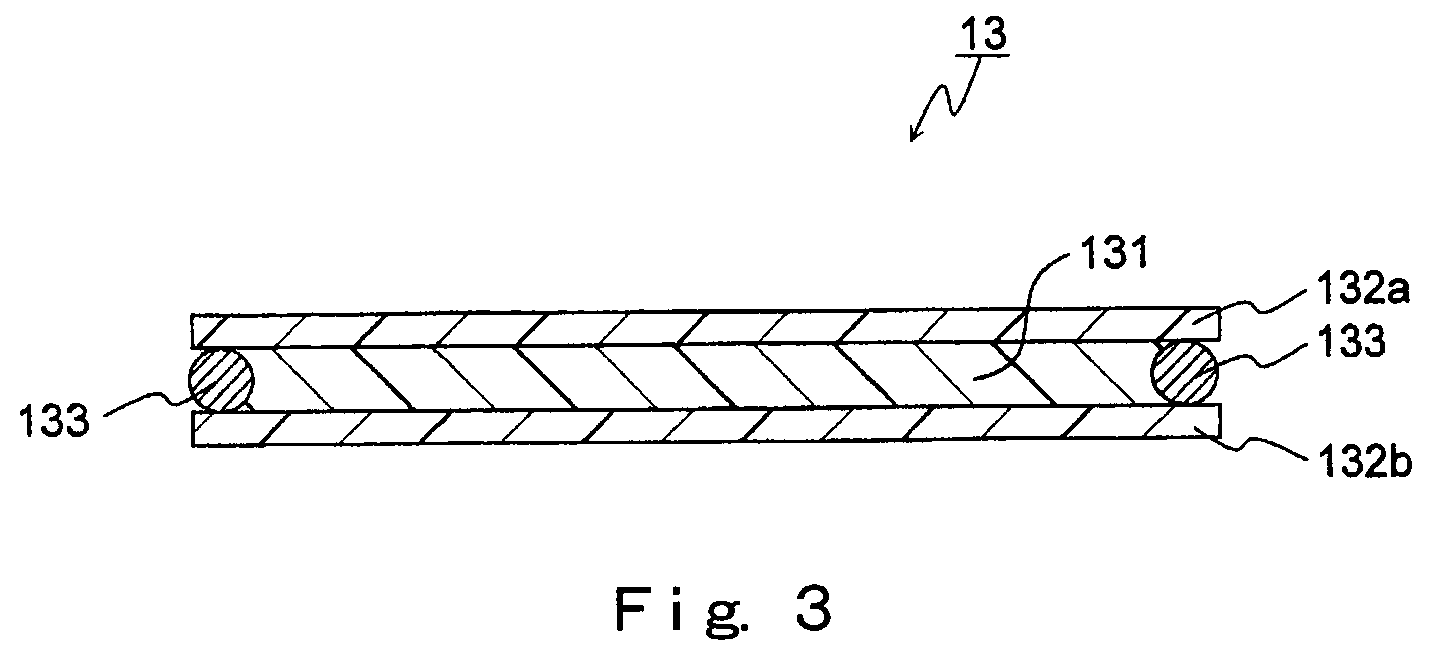Liquid crystal panel, and liquid crystal display
a liquid crystal display and panel technology, applied in non-linear optics, instruments, optics, etc., can solve problems such as providing neutral display without, and achieve the effect of high display quality and excellent uniformity of display
- Summary
- Abstract
- Description
- Claims
- Application Information
AI Technical Summary
Benefits of technology
Problems solved by technology
Method used
Image
Examples
example 1
[0180]The optical compensation layer (A) was laminated and adhered to a polarizing plate (“SIG” (trade name) manufactured by Nitto Denko Corporation) via an acrylic-based pressure-sensitive adhesive having a thickness of 20 μm, to thereby prepare a polarizing plate (A) having a compensation layer. At this time, these members were laminated so that the direction of slow axis of the optical compensation layer (A) and the direction of absorption axis of the polarizing plate are orthogonal to each other.
[0181]The optical compensation layer (B) was laminated and adhered to a polarizing plate (“SIG” (trade name) manufactured by Nitto Denko Corporation) via an acrylic-based pressure-sensitive adhesive having a thickness of 20 λm, to thereby prepare a polarizing plate (B) having a compensation layer. At this time, these members were laminated so that the direction of slow axis of the optical compensation layer (B) and the direction of absorption axis of the polarizing plate are orthogonal t...
example 2
[0188]One polarizing plate (A) having a compensation layer and one polarizing plate (C) having a compensation layer were fabricated in a similar manner as in Example 1 except that the optical compensation layer (B) used in Example 1 was replaced by the optical compensation layer (C).
[0189]Then the polarizing plate (A) having a compensation layer was adhered on the viewing side surface of the liquid crystal cell and the polarizing plate (C) having a compensation layer was adhered on the opposite viewing side surface of the liquid crystal cell in a similar manner as in Example 1.
[0190]In this manner, a liquid crystal panel according to Example 2 was fabricated (see Table 2).
[0191]The liquid crystal panel of Example 2 was joined to a backlight unit of the original liquid crystal TV set in a similar manner as in Example 1, to fabricate a liquid crystal TV set.
[0192]Measurement result of color shift of the obtained liquid crystal TV set is shown in the graph of FIG. 6.
example 3
[0193]The optical compensation layer (A) was laminated and adhered to a polarizing plate (“SIG” (trade name) manufactured by Nitto Denko Corporation) via an acrylic-based pressure-sensitive adhesive having a thickness of 20 μm, to thereby prepare a polarizing plate (A) having a compensation layer. At this time, these members were laminated so that the direction of slow axis of the optical compensation layer (A) and the direction of absorption axis of the polarizing plate are orthogonal to each other.
[0194]Two optical compensation layers (D) were prepared to be laminated and adhered to a polarizing plate (“SIG” (trade name) manufactured by Nitto Denko Corporation) via an acrylic-based pressure-sensitive adhesive having a thickness of 20 μm, to thereby prepare a polarizing plate (D) having a compensation layer. At this time, these members were laminated so that the direction of slow axis of the optical compensation layer (D) and the direction of absorption axis of the polarizing plate...
PUM
 Login to View More
Login to View More Abstract
Description
Claims
Application Information
 Login to View More
Login to View More - R&D
- Intellectual Property
- Life Sciences
- Materials
- Tech Scout
- Unparalleled Data Quality
- Higher Quality Content
- 60% Fewer Hallucinations
Browse by: Latest US Patents, China's latest patents, Technical Efficacy Thesaurus, Application Domain, Technology Topic, Popular Technical Reports.
© 2025 PatSnap. All rights reserved.Legal|Privacy policy|Modern Slavery Act Transparency Statement|Sitemap|About US| Contact US: help@patsnap.com



